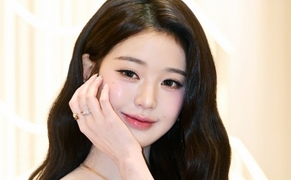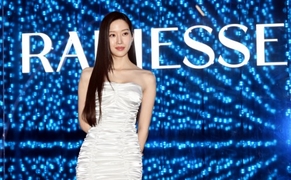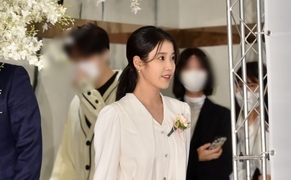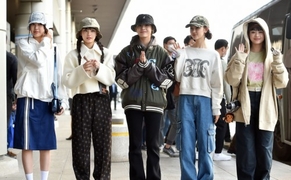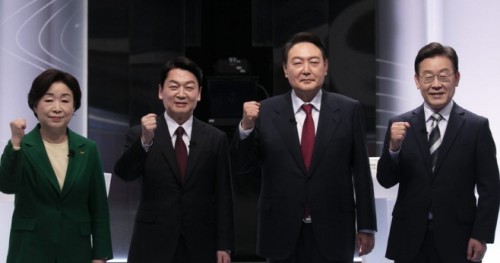 |
| Sim Sang-jeung of the progressive Justice Party, Ahn Cheol-soo of the minor opposition People’s Party, Yoon Seok-youl of the main opposition People Power Party, and Lee Jae-myung of the ruling Democratic Party pose for a photo before their second TV debate on political affairs at SBS in Seoul on Feb. 25, 2022./ Source: National Assembly Joint Press Pool |
AsiaToday reporter Jeong Geum-min
With the 20th presidential election just a week away, neither ruling Democratic Party (DP) candidate Lee Jae-myung nor main opposition People Power Party (PPP) candidate Yoon Seok-youl is taking a noticeable lead. This is in line with the high disapproval rates for both of them, which has intensified with mudslinging, and the gathering of each bloc. Besides, security issues and the pandemic have put Lee and Yoon in a rare, yet fierce neck-and-neck race. At the moment, the biggest factor that can shake up the current situation seems to be voting intentions and turnout of voters in their 20s and 30s.
According to the election statistics system of the National Election Commission, Lee and Yoon were in a fierce neck-and-neck race in the major opinion polls released recently.
According to a survey by polling agency Gongjung commissioned by Dailian, Yoon was leading the pack with support of 45.4 percent, followed by Lee with 42.3 percent. Ahn Cheol-soo of the minor opposition People’s Party and Sim Sang-jeung of the progressive Justice Party had 5.5 percent and 2.1 percent of support, respectively. The poll questioned 3,004 people across the country from Feb. 25 to Feb. 27. It had a 95 percent confidence level with a margin of error of plus or minus 1.8 percentage points.
A separate poll by Korea Research, commissioned by KBS, showed that both Lee and Yoon had the same support rate of 39.8 percent. The poll surveyed 2,000 people aged 18 and over nationwide from Feb. 24 to Feb. 26, with the margin of error of 2.2 percentage points. Ahn received 8.2 percent and Sim had 3.1 percent.
As the neck-and-neck race between the two major candidates continues, attention is being drawn to young voters in their 20s and 30s, who are known to have casting votes. Young voters tend to vote according to their interests without being bound by political ideology or region, which makes it difficult to predict their voting intentions. Besides, they account for nearly 30 percent of total voters in the upcoming presidential election.
Therefore, the rival parties are working hard to attract the young voters. “We see men in their 20s living in Seoul as swing voters. Their response rate is very low in polls,” said Woo Sang-ho, chief of the DP campaign committee. “The results of the poll seemingly shows that support for Yoon is high among voters in their 20s. But speaking mainly of the Seoul region, male voters in their 20s have not yet made up their minds,” he added.
Yoon also ran a campaign in college towns, where many young people are seen, and made a tailored pledge to offer 100 million won at the maturity of 7 years for young people aged 19-34 who save a certain amount of money every month.
Voter turnout on a two-day early voting period and on voting day is also of interest to the political community. This is because the key is how many voters will come to cast their ballots amid the pandemic.
The PPP is encouraging early voting to its main supporters, those in their 20s, 30s and 60s and older, in case the turnout is low due to concerns about the pandemic. In a survey on the support for presidential candidates conducted by Southern Post and commissioned by CBS No Cut News on Feb. 26, those aged 18-29 showed overwhelming support to Yoon with 35.2 percent. Lee received 24.2 percent of support. Among the respondents in their 30s, Lee and Yoon received 32.7 percent and 37.8 percent of support, respectively.
#presidential election #Lee Jae-myung #Yoon Seok-youl #poll
Copyright by Asiatoday
Most Read
-
1
-
2
-
3
-
4
-
5
-
6
-
7

















